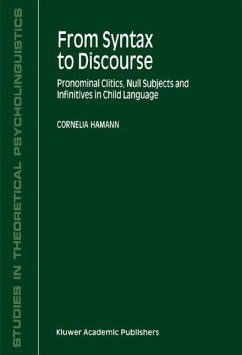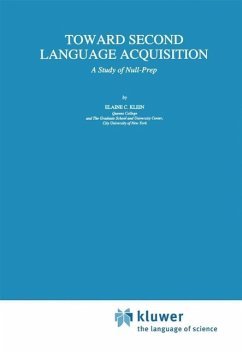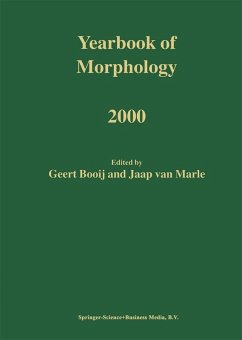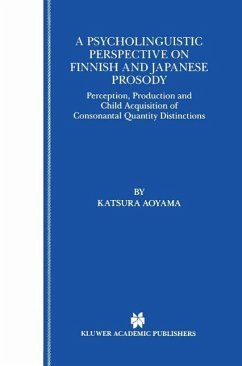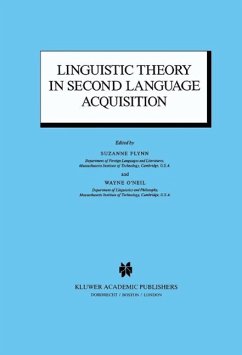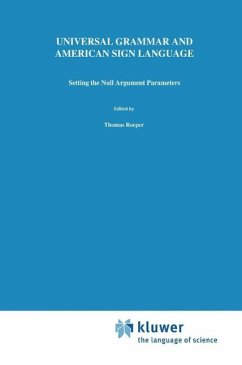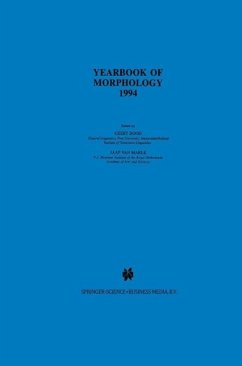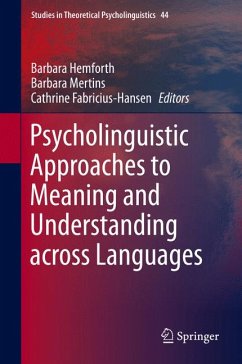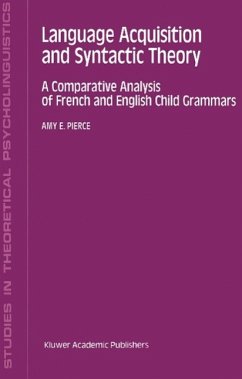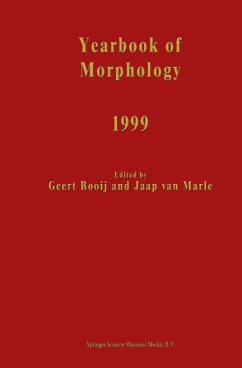
Bilingual Selection of Syntactic Knowledge (eBook, PDF)
Extending the Principles and Parameters Approach
Versandkostenfrei!
Sofort per Download lieferbar
72,95 €
inkl. MwSt.
Weitere Ausgaben:

PAYBACK Punkte
36 °P sammeln!
Bilingual Selection of Syntactic Knowledge motivates a more formal approach in theoretical linguistics by investigating the parameters of syntactic variation and simultaneous acquisition of multiple languages. Taking the behavior of the Null Subject Parameter (NSP) across languages as an illustration, the book raises important questions concerning the adequacy of standard parameter-setting models in the face of compelling evidence from both mono- and bilingual child speech data. Teresa Satterfield argues convincingly that so-called `universal' premises guiding well-known parametric approaches ...
Bilingual Selection of Syntactic Knowledge motivates a more formal approach in theoretical linguistics by investigating the parameters of syntactic variation and simultaneous acquisition of multiple languages. Taking the behavior of the Null Subject Parameter (NSP) across languages as an illustration, the book raises important questions concerning the adequacy of standard parameter-setting models in the face of compelling evidence from both mono- and bilingual child speech data. Teresa Satterfield argues convincingly that so-called `universal' premises guiding well-known parametric approaches greatly complicate attempts to construct an economical bilingual analysis. Further, she demonstrates the compatibility of more recent formulations in linguistic theory (i.e. the Minimalist Program) and studies on language learnability (Clark, 1992, 1993; Kapur, 1994) which present the view that while initially convincing, standard parameter models are potentially costly and less than effective in terms of monolinguals as well. Using Clark's application of the Genetic Algorithm as a point of departure, Bilingual Selection of Syntactic Knowledge describes a number of computational simulations. These simulations not only demonstrate the robustness of the GA-as-language-learner, they offer a more detailed account of the parameter-setting task confronting the bilingual child while also making more precise predictions regarding the process of syntactic knowledge.
Dieser Download kann aus rechtlichen Gründen nur mit Rechnungsadresse in A, B, BG, CY, CZ, D, DK, EW, E, FIN, F, GR, HR, H, IRL, I, LT, L, LR, M, NL, PL, P, R, S, SLO, SK ausgeliefert werden.



